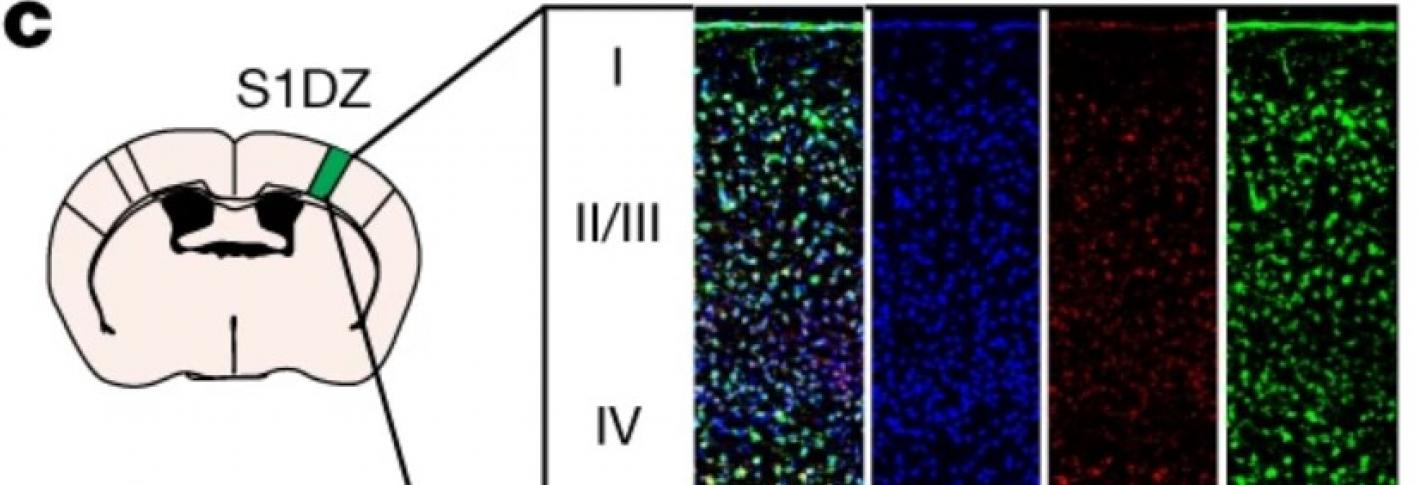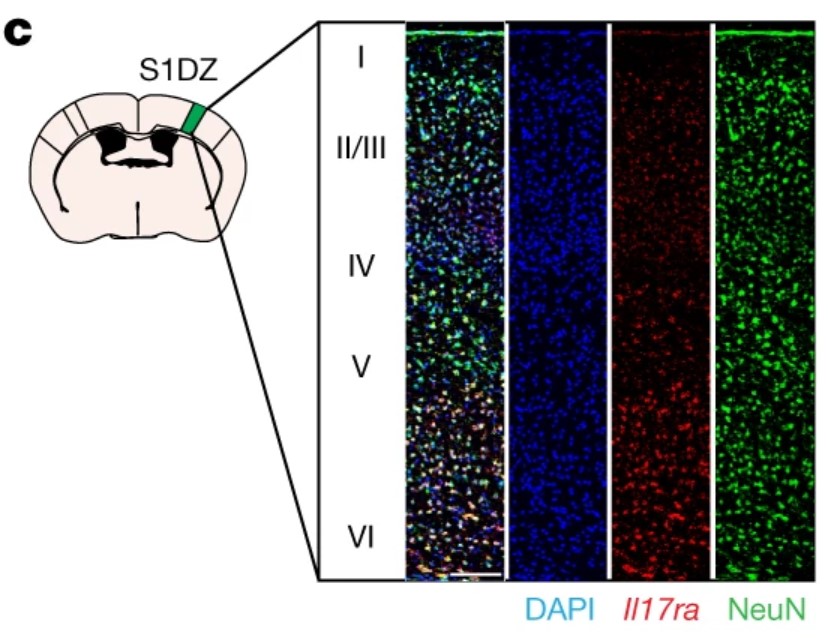
For years physicians and parents have noticed in some people with autism behavioral symptoms including impairment in social behaviors seems to improve when they run a fever. In 2019, the Picower Institute lab of Gloria Choi co-led a study that discovered an explanation for this phenomenon in mouse models.
Working with that of Harvard immunologist Jun Huh, Choi’s team had previously demonstrated that among mothers who harbored certain bacteria in their microbiome, infection during pregnancy could lead to overexpression of the immune system molecule IL-17a. Upon reaching receptors in brain cells of the fetus the molecule hindered proper development, leading to hyperexcitation in the S1DZ region of the cortex. That, in turn, led to autism-like social behaviors in the offspring as adults.

With that background, in the 2019 study in Nature, Choi and Huh’s labs looked into how illness among people with autism might improve social behavior. First they replicated the phenomenon in mice whose autism-like symptoms were the result of maternal infection during pregnancy. They found that the improvement in social behavior during illness occurred because of heightened production of IL-17a reaching the brain – the opposite of its effect during fetal development. Moreover, they found that if they directly injected IL-17a into mice modeling a few genetically caused forms of autism, their social behavior improved, too.
In other words, in several mouse models of autism the immune system molecule IL-17a (not fever, per se) appears to reduce hyperexcitability in the S1DZ region of the cortex, improving atypical social behavior.

